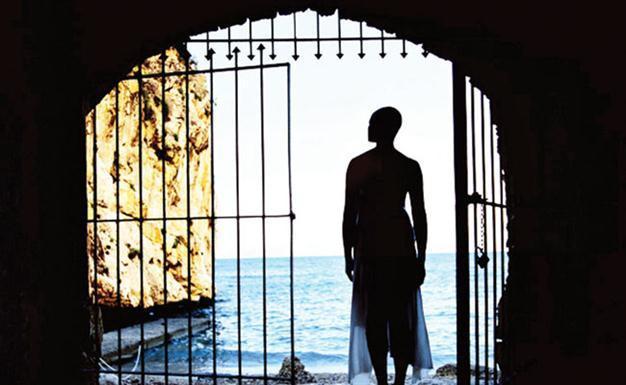Dirimart presents Isaac Julien’s ‘The Leopard’
ISTANBUL - Hürriyet Daily News

Deploying a unique
film language through performance, poetry and interdisciplinary mediums, film director and artist Isaac Julien is showing his film, “The Leopard,” at Istanbul’s
Dirimart Garibaldi.
“The Leopard,” which was previously screened at the 67th Venice Film
Festival, will be shown between Feb. 4 and March 5 at Dirimart Garibaldi. The event is part of the “Storytellers: Art and Cinema Today” series, which will feature the works of artists working in the fields of contemporary art and cinema over a six-month period.
Julien, whose works focus on post-colonial theory and civilization in a psychoanalytic context, employs political aesthetics in his work.
The film director, who has been active in cinema for 25 years, destroys the barriers between different art disciplines. Julien is attracted to intertextuality and an interdisciplinary approach. As such, he combines different practices such as film, dance, music, photography, theater, painting and sculpture to create a visually strong narration. This combination has been effective in the process of the formation of his poetic visual language that he uses in his audio-visual installations. All his films are meticulously prepared compositions that resemble paintings.
“I think I work exactly like a painter. Each film still is a composition,” he said.
Julien, who is an educated painter and a graduate of art academies in cities such as London and Brussels, is an anti-conformist both in his works and personal life. He thus defies cultural traditions by visualizing political violence in the context of exploitation trauma and the perversion of history by racist approaches that operate behind the consciously polished surfaces of notions such as migration and exploitation. Julien digs up the open wounds of post-colonial daily life because he is not able to heal them even as he presents them beautifully.
“The Leopard” is the single-screen version of Julien’s “Western Union: Small Boats” series. The film combines clandestine African immigrants and myths from the past and tells a tale of failed hopes and dreams of modernity. “The Leopard” is a reflection on migration and a better life.
The installation takes its title and visual starting point from famous Italian producer Visconti’s masterpiece, “The Leopard.” Julien uses the decors Visconti previously used and the environments he shot in his movie to tell his story. The Visconti Leopard was about Italian unification between north and south, between Sicilian society and Italian society, which are two distinct societies.
Julien’s film features the notion of migration and the tragic stories it contains by using the environments used in the Visconti Leopard to articulate a subject that is also on the agenda in the 21st century, such as dead bodies washing up on the coast, interrupting the usual holiday activities on the beach.
It is the clash of these two activities that forms a disturbance in this space even though the Mediterranean is historically a space of transition between Europe and Africa.
Ultimately, the viewer has to put together the pieces without any given instructions. “I am more interested in using a new and unique film language – even more than in cinema itself,” he said.
About Isaac Julien
Isaac Julien was born in 1960 in London and graduated as an honors student from the art and film departments at the St. Martin’s School of Art.
Julien was nominated for the Turner Prize in 2001 for his films “The Long Road to Mazatlan” (1999) and “Vagabondia” (2000). In the same year, he received the Eugene McDermott Award from MIT in Massachusetts.
He received the grand jury award at the KunstFilmBiennale in Cologne for his work “Baltimore” (2003). Julien’s debut film, “Looking for Langston” (1989), won the Teddy Award at the Berlin International Film Festival.
His feature film “Young Soul Rebels” also won the Semaine de la Critique prize at the Cannes Film Festival.
isaac julien,
 Deploying a unique film language through performance, poetry and interdisciplinary mediums, film director and artist Isaac Julien is showing his film, “The Leopard,” at Istanbul’s Dirimart Garibaldi.
Deploying a unique film language through performance, poetry and interdisciplinary mediums, film director and artist Isaac Julien is showing his film, “The Leopard,” at Istanbul’s Dirimart Garibaldi.
